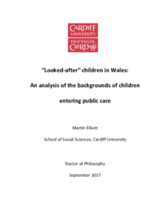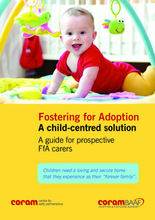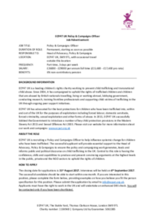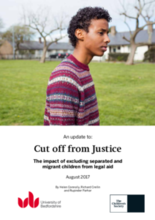Displaying 891 - 900 of 1177
A mass grave, where hundreds of former child residents of a child care institution are believed to be buried, has been uncovered in Lanarkshire, southern Scotland.
The article is based on a qualitative study of residential child care practitioners’ views and perspectives of the blocks and enablers to the implementation of staying put and continuing care practice with three Scottish local authorities.
This study seeks to address a number of important questions with regard to children in public care, commonly referred to in the UK as ‘looked-after’ children.
This guide from CoramBAAF describes Fostering for Adoption (FfA) as "one part of that solution and is a route to achieving early permanence (an umbrella term which covers the placement of a child through FfA or concurrent planning – see below) for a child."
ECPAT UK is recruiting a Policy & Campaigns Officer to help influence systemic change for children who have been trafficked.
"There have been well substantiated reports of trafficked children in orphanages for several years," writes Harold Goodwin in WTM's Responsible Tourism Blog.
This paper reports the findings from a study investigating the priorities of care-leavers who arrived in England or Sweden as unaccompanied minors.
This updated report presents the findings and recommendations from a study investigating the situation and experience of unaccompanied children in the UK's legal system.
UK government cuts to legal aid in 2012 have greatly impacted unaccompanied migrant children, who are now denied legal aid in non-asylum cases.
Tens of thousands of children referred to England's social services due to abuse or neglect are falling through the cracks because they do not meet the statutory criteria for help.






